The Effect of Social Media Influencers on Luxury Products
Dalton Seesz, Hope Motreuil, Jarvis Gates & Zunayeed Noor Alam.
Frank G. Zarb School of Business
Introduction
Our research sought to determine what the impact of social media influencers' trustworthiness is on price worthiness and the effect it has on brand trust, purchase intention, and willingness to pay a premium price for luxury brands

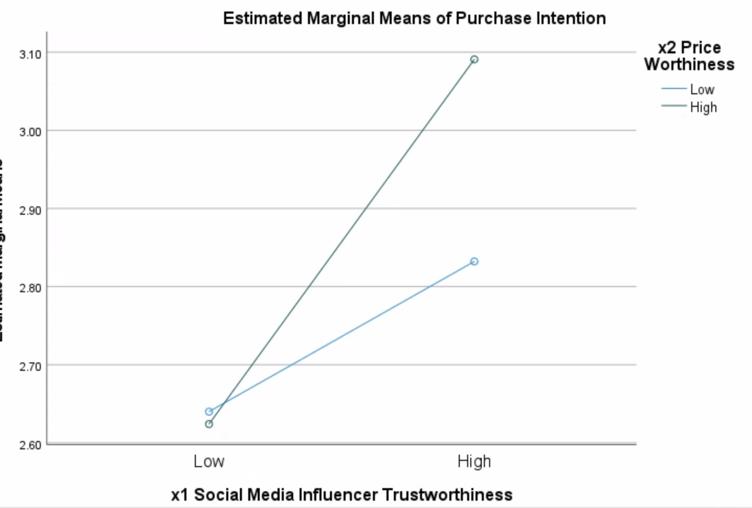

The purpose of this study is to determine the effectiveness of Social Media Influencer’s trustworthiness and price worthiness on brand trust, purchase intention, and willingness to pay a premium price for luxury products
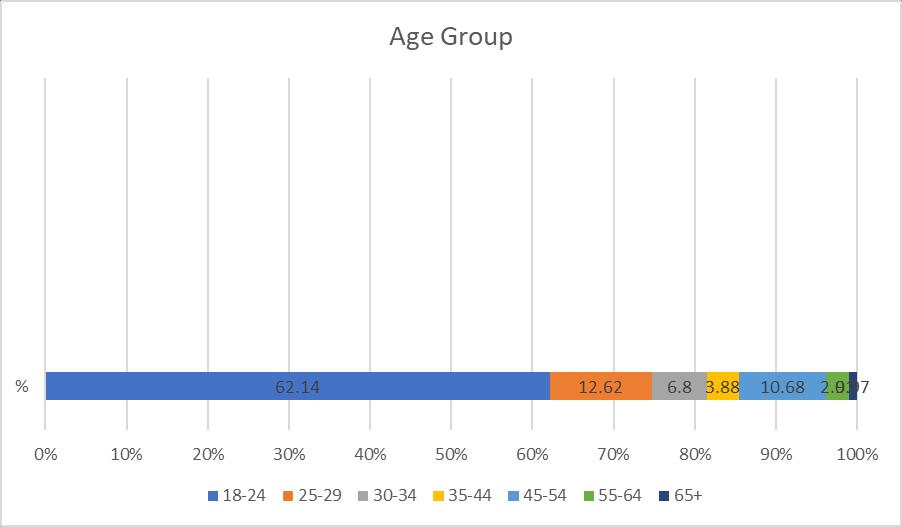
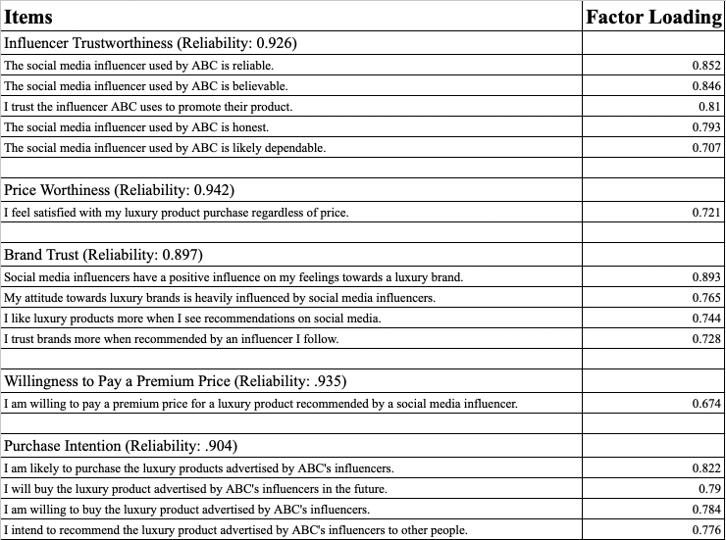
Luxury Products
“A branded product or service that consumers perceive to be high quality, offer authentic value via desired benefits, whether functional or emotional, have a prestigious image within the market built on qualities such as artisanship, craftsmanship, or service quality, be worthy of commanding a premium price, and be capable of inspiring a deep connection, or resonance, with the consumer” (Ko et al ,2017, p 2)
Consumers purchase luxury brands to gain exclusivity, status, and prestige
Social Media Influencers
Social Media Influencers or SMIs can be defined as a third-party endorsers who can shape attitudes and help market products They can be identified as micro-celebrities and/or opinion leaders who have a large number of followers
Studies have shown that SMIs have the power to influence their audiences toward a brand promoted (Abdullah, T , Deraman, S , Zainuddin, S., 2020)
Hypotheses




➢ H1: For high trustworthiness of social media influencers, the effect of perceived price on the attitudes toward the brand, purchase intention, and willingness to pay a premium price is positive.
➢ H2: For low trustworthiness of social media influencers the effect of perceived price on the attitudes toward the brand, purchase intention, and willingness to pay a premium price is negative.
The independent variables are Social Media Influencers’ trustworthiness (high and low) and price worthiness (high and low)


❑ x1 : Social Media Influencers trustworthiness
❑ X2: Price Worthiness
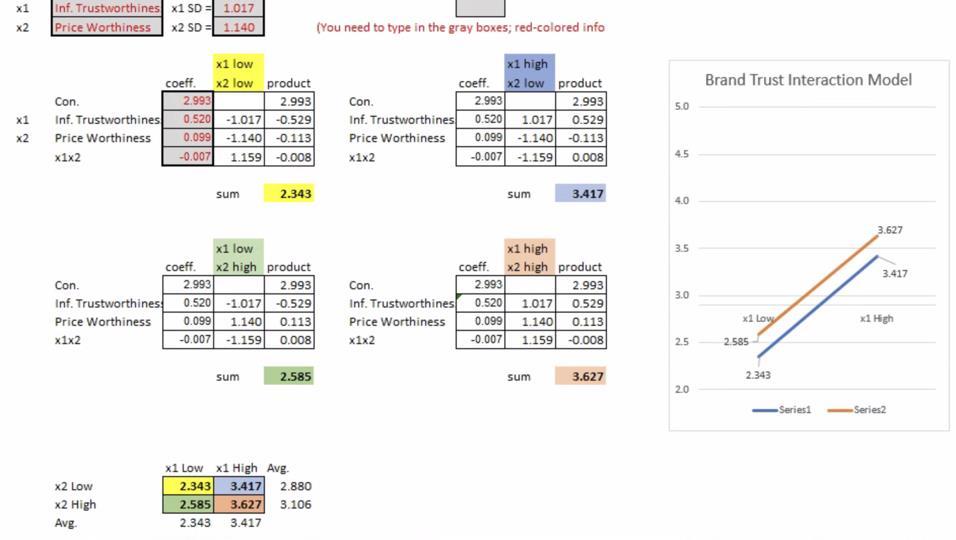
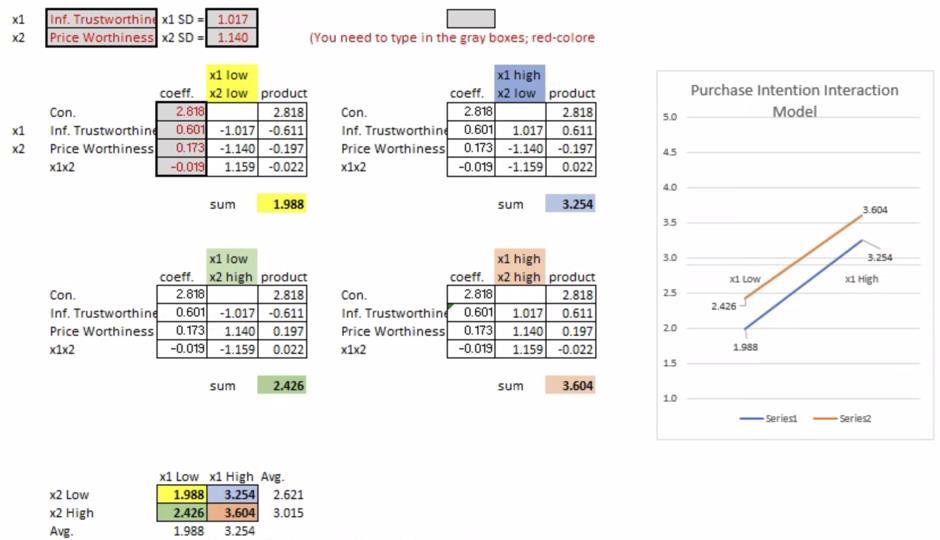
The experiment's dependent variables are the brand trust, purchase intention, and willingness to pay a premium price.

Dependent variables:
❑ Y1: Brand Trust - is the belief consumers have that a brand will fulfill the needs and aspirations
❑ Y2: Purchase Intention - is an attitude variable that measures consumers interest and desire to purchase a product and can be used to forecast future behavior.
❑ Y3: Willingness to pay premium price - is how much a customer is willing to pay
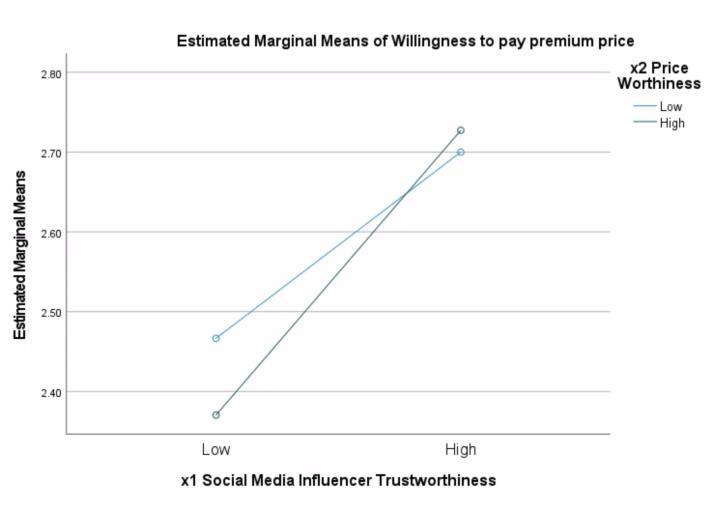
✓ Given our data analysis results it is fair to conclude that for the most part our hypotheses are supported statistically
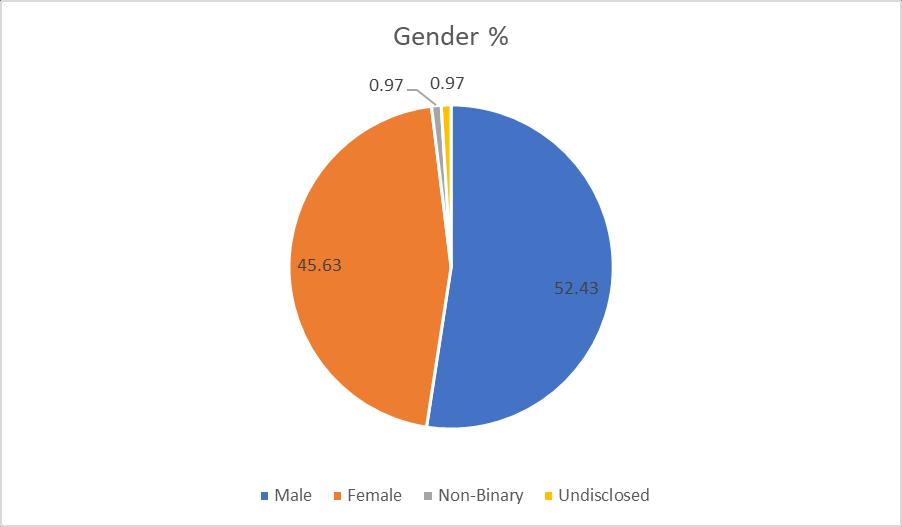

✓ There is a clear relationship between how low/high Social Media Influencers trustworthiness and price worthiness affect brand trust, purchase intention & willingness to pay premium price.
✓ In scenarios in which Social Media Influencers trustworthiness and price worthiness are both high, there is a positive correlation with brand trust, purchase intention & willingness to pay premium price.
Managerial Implications
❖ In terms of managerial implications, luxury brands should hire influencers to promote their products who are proven to be transparent and trustworthy with consumers as well as maintaining quality of their products
❖ That way they are maintaining a high level of both influencer trustworthiness and price worthiness Based on our research, this approach would greatly benefit a luxury brand
